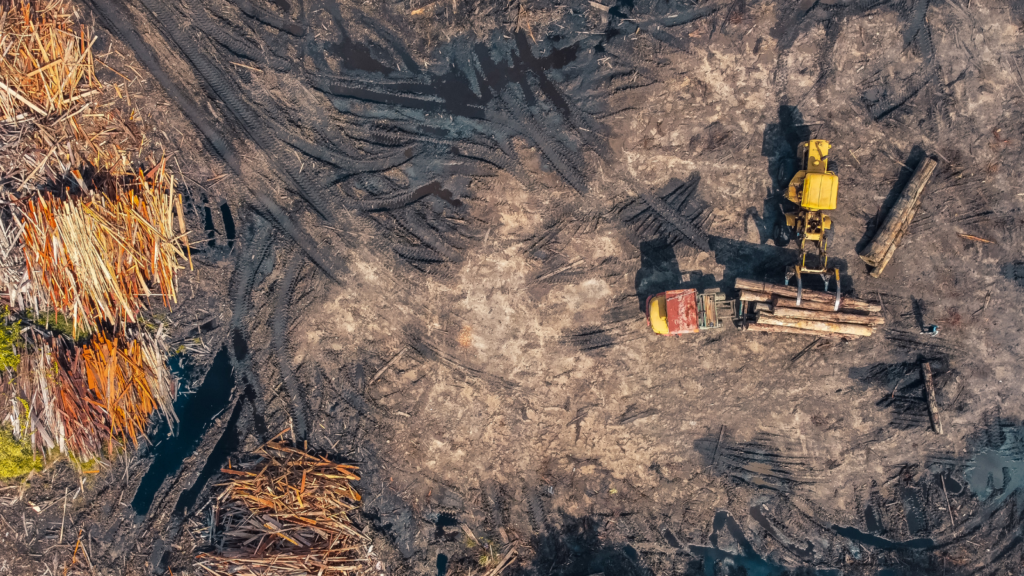Trinidad and Tobago is facing an urgent environmental crisis as deforestation rates continue to rise, endangering the nation’s rich biodiversity. Recent data from Global Forest Watch highlights alarming trends in tree cover loss, underscoring the need for immediate conservation efforts to protect the country’s natural heritage.

The alarming decline of forest cover
Trinidad and Tobago is home to diverse ecosystems and unique flora and fauna. However, forest cover has been steadily diminishing over the past few decades. Between 1990 and 2010, the country lost approximately 6.2% of its forest cover, around 15,000 hectares. Even more concerning, the loss of primary forest, which is the most biodiverse and carbon-dense, stands at 27.4%.
In 1990, 74% of the country’s land had more than 30% tree coverage. Since then, tree coverage has steadily declined, largely due to human activities. The primary drivers of deforestation include agricultural expansion, urbanization, and illegal logging. Large-scale land conversion for crops such as cocoa and oil palm has led to widespread habitat destruction, threatening numerous plant and animal species.
Biodiversity and the climate connection
Deforestation plays a critical role in climate change. When trees are cut down or burned, stored carbon is released into the atmosphere, intensifying the greenhouse effect. This contributes to erratic weather patterns, including prolonged droughts, severe floods, and other extreme climate events. Additionally, deforestation weakens nature’s ability to serve as a defense against climate change by reducing the land’s capacity to absorb carbon emissions.
Ecosystem disruption has long-term consequences for both the environment and human well-being. Trinidad and Tobago’s forests support a wealth of species, including the endemic Trinidad piping-guan and the Tobago hummingbird. However, habitat destruction is pushing these species towards extinction, reinforcing the urgent need for conservation efforts.
A call for conservation
Speaking on the issue, Riley Joseph, a youth climate justice activist, stresses the importance of protecting the country’s forests.
“Almost half of Trinidad and Tobago is considered forested, and these forests contribute significantly to our biodiversity. Relative to our size, we have incredibly high biodiversity,” says Joseph.
“Forest ecosystems like the Northern Range are home to a large number of terrestrial species. However, with increasing deforestation, we are seeing a decline in key species such as bats, which play a crucial role in maintaining forest health. Without these keystone species, forest recovery from environmental stresses—such as wildfires—becomes much more difficult.”
Biodiversity loss weakens ecosystems’ ability to mitigate climate change impacts. Healthy forests provide essential services such as coastal protection from storms, flood prevention, and temperature regulation. Without them, extreme weather events become even more devastating.
Balancing development and sustainability
While some argue that economic development and infrastructure projects necessitate deforestation, sustainable land management practices offer a viable alternative. Strategies such as agroforestry and reforestation can allow economic growth to coexist with environmental conservation, ensuring a more sustainable future for Trinidad and Tobago.
The data highlights the urgent need for policy changes and reforestation initiatives to combat deforestation and biodiversity loss. By prioritizing conservation and sustainable land use, Trinidad and Tobago can protect its natural heritage for future generations while fostering a more resilient and environmentally sustainable society. Addressing climate change requires bold action—including stringent policies, reforestation programs, and sustainable agricultural practices—to curb deforestation and its far-reaching consequences.
This story was published with the support of the Caribbean Climate Justice Journalism Fellowship, a joint initiative of Climate Tracker and Open Society Foundations.
Data sourced from Global Forest Watch, World Rain Forests, and the Food and Agriculture Organization of the United Nations. Interview conducted with Riley Joseph, BSc Environmental Science & Biology student and climate activist, on December 30, 2024.